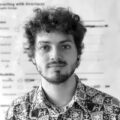IaaC Global Summer School 2025
Dubai Node
DESCRIPTION
The IaaC Global Summer School (GSS) 2025 is an international initiative exploring cutting-edge design, technology, and spatial innovation. This year, the Dubai Node focuses on integrating neurotechnology, generative AI, and human-machine interaction into the spatial design discourse through hands-on prototype development.
Neurotechnology allows both biosensing and interaction, it is one of the future paradigms that will change how we design, interact with technology, understand ourselves, and how we are affected by the world around us. While neurotechnology is an enabler as such, we will be exploring it through its applications with AI, Mixed Reality, Physical computing, and spatial design at large.
RESULTS OF PREVIOUS EDITION
STRUCTURE
Participants will engage in a two-phase structure:
- Phase 1 (June 30 -4 ) – Students explore core concepts, select projects, form groups, and develop initial prototype experiments.
- Phase 2 (July 7 – 11) – A final collective project is chosen (or pre-selected), combining the most compelling ideas from Phase 1 into a single advanced prototype.
The program combines technical training, speculative design, real-time experimentation, and prototyping, culminating in a final public presentation and documentation of findings.
TUTORS

Firas Safieddine
Spatial Design Practitioner | Research Cluster Lead
Firàs is a spatial design practitioner whose work spans architecture, urbanism, design, ecology, media art, and neurotechnology. He coined “Electrical Ecologies” and aims at designing the first ‘architecture brain implant’.
He is the founder and executive strategist at Spatial Forces, a next-generation spatial design practice operating from the microcontroller to territory scales, redefining spatial design in light of the current technosphere.
His professional involvement beyond Spatial Forces engages with strategy, writing, community building, and academia. He is a co-founder and Creative Strategist at Urbanitarian, an author and editorial board member at UrbanNext, and a Chapter lead at NeurotechBCN, the Barcelona chapter of NeurotechX.
He is the author of “Spatialization Takes Command”, a book that navigates the evolution of the internet, and the future of urbanism and life as we live it.

Cristian Rizzuti
Interactive Media Artist & Researcher | Physical Computing Expert
Cristian Rizzuti is an interactive media artist working between Barcelona and Rome. With a degree in Visual and Multimedia Arts and a Master’s in Interactive Environments (M-IA) from IUAV University of Venice, Cristian’s work centers on the intersection of human perception, synesthetic spaces, and emotionally resonant soundscapes connected to the body.
Inspired by science, mathematics, and digital experimentation, his artistic language takes shape through interactive installations and light sculptures. His works have been exhibited at major festivals and institutions across Europe, including Sónar Festival (Barcelona), the MAXXI Museum (Rome), Venice Biennale, and ZKM Center for Art and Media (Karlsruhe).
Cristian currently teaches at the Academy of Fine Arts in Rome and is a Physical Computing Expert at the Institute for Advanced Architecture of Catalonia (IAAC), where he explores the convergence of art, technology, and responsive environments.

Krzysztof Galant
Interdisciplinary Designer | Emergent Interfaces & 3D Engine Expert
Krzysztof Galant is an interdisciplinary designer exploring the evolving landscape between architecture, game design, computational systems, and digital fabrication. His work investigates how emerging technologies—such as real-time engines and experimental interfaces—can reshape the way we design, interact, and build.
With a background spanning architecture, virtual environments, and interactive media, Krzysztof has designed buildings, games, virtual stores, booth designs, animations, and immersive installations. His creative method thrives in the undefined, where hybrid solutions and speculative approaches take the lead.
Currently part of Spatial Forces, Krzysztof brings a deep expertise in 3D engines and emergent design strategies to collaborative, forward-thinking projects that blur the line between the digital and physical.

Michele Romani
PhD Researcher in Brain-Computer Interfaces | BCI Game Development Specialist | Designer & Technologist | Human-Centered AI
Michele Romani is a designer and technologist from Northern Italy, working at the intersection of human behavior, artificial intelligence, and computational design. As a PhD researcher specializing in Brain-Computer Interfaces (BCI) and BCI-driven game development, Michele explores how emerging neurotechnologies can deepen our understanding of cognition and reshape interactive digital experiences.
With a lifelong curiosity about our relationship with technology, his journey began with creative exploration—modding games, designing visuals, and self-teaching programming. Today, Michele focuses on developing Human-Centered AI applications that enhance the interaction between humans and machines.
His work bridges technical innovation with empathetic design, and he sees AI as a critical tool in advancing the next generation of neuroscience-informed applications.

Will Stark
Comprehensive Anticipatory Designer | Parallel Entrepreneur | Radical Futurist
William Stark is a comprehensive anticipatory designer, parallel entrepreneur, and radical futurist. Born in China, raised in the U.S., and now based in Dubai, William is committed to envisioning, designing, and building futures that are inclusive, resilient, and transformative.
His experience spans research, teaching and practice, as he leads his Augmented Integrative Momentum (AIM) DESIGN, a design future Consultancy and Subscription Service agency to amplifying the impacts of visionary brands, X Fusor Design Labs, a visionary Decentralized Autonomous Design research, studio and agency collective pioneering the X Fusor SYSTEM, and part of X ACADEMY to disseminate cutting edge knowledge with a program that filled with innovative spirits.
His multidisciplinary approach blends strategic foresight, speculative design, and systems thinking to tackle complex global challenges. Whether through entrepreneurship or design experimentation, William’s work explores the possibilities of what tomorrow can—and should—look like.

Daniel Escobar
Architect & Machine Learning Specialist | AI & 3D Design Innovator
Daniel Escobar is a New York–based architect and designer whose practice sits at the intersection of artificial intelligence, narrative exploration, and spatial design. He investigates how open‑ended, multi‑agent systems can augment creative workflows and redefine our experience of space.
Passionate about visual aesthetics and sensory engagement, he harnesses computational methods to generate and transform environments—automating routine tasks and orchestrating agent‑based collaborations that amplify human creativity and craft resonant spatial narratives.
He runs Diffusion Architecture, a leading Instagram community page for AI‑generated architectural concepts, collaborates with artists and architects on creative AI projects, and champions thoughtful, responsible AI development to ensure its positive impact on both the profession and society.
Escobar has presented and published on AI in design and 3D generation at ACADIA and CAADRIA, exhibited installations at the South Korea Light Festival 2023 and Venice Biennale, received Telefónica Movistar funding for “The Power of Data,” and has taught workshops on computational design and AI in architecture.
LECTURES
LOCATION
The IaaC Global Summer School – Dubai Node will take place in Al Shindagha, a culturally rich neighborhood at the historic heart of Dubai. Positioned along the scenic Dubai Creek and bordered by Bur Dubai and Port Rashid, Al Shindagha is a living archive of the city’s heritage. The area has undergone extensive restoration to revive its traditional architecture and urban fabric. With its blend of history and transformation, Al Shindagha becomes a new innovation factory, an inspiring backdrop for exploring future-driven ideas in architecture, urbanism, art, and design.
REQUIREMENTS
Eligibility
IAAC GSS is open to creative and innovative people who are interested in fields such as architecture, urbanism, digital fabrication, design, art, etc., searching for a multidisciplinary experience in an rich and dynamic environment. No previous skills are required, although design, programming and physical computing skills are welcome. The official language of the course is English.
Credits
By the end of the course, participants will have gained both theoretical and practical knowledge about advanced design strategies, with a particular emphasis on neurotechnology, AI, and interactive media art. On the final day, participants will present their developed projects, which will be reviewed by a distinguished jury, and will receive a Global Summer School Diploma.
Visa
Each participant is responsible to investigate which documents are required via the embassies in their country of origin. The school will provide a confirmation letter regarding the participation to the course, and will assist the visa process wherever is possible.
Fee
The Dubai Node is a tuition-free program sponsored by Dubai Culture to support and promote local talent. Selected applicants, chosen through an open call, will have the opportunity to participate in the program. Please note that students wishing to travel to Dubai for the IaaC GSS are responsible for covering their own travel and accommodation expenses.
APPLICATIONS
Application are now open!
For any further information contact Dubai Node organiser via: [email protected]



